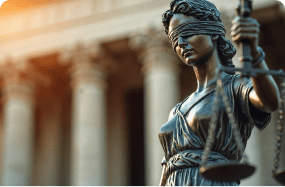A road accident is one of those moments that can flip your world upside down in seconds. Whether it’s a minor fender-bender or a serious collision, the aftermath can be chaotic and confusing. But knowing what to do after a road accident can make a world of difference—for your safety, your legal protection, and your peace of mind.
Here’s a practical, step-by-step guide to help you handle the situation responsibly and calmly.
1. Stay Calm and Stay Safe
The first thing to remember is: Don’t panic. Take a deep breath. If possible and safe to do so, move your vehicle to the side of the road to avoid blocking traffic and reduce the risk of another accident. Turn on your hazard lights immediately.
If the accident is severe and your vehicle is not drivable, leave it as is and ensure everyone is out of harm’s way.
2. Check for Injuries
Your safety and the safety of others is the top priority.
- Check yourself and passengers for injuries.
- Check on the occupants of the other vehicle(s).
- Call emergency services (911 or your country’s equivalent) immediately if anyone is injured.
Do not attempt to move anyone who is seriously injured unless there is an immediate danger (e.g., fire).
3. Call the Police
Even for minor accidents, it’s a good idea—and sometimes a legal requirement—to report the incident. A police report provides an official record, which is critical for insurance claims and any legal proceedings.
When the police arrive:
- Be honest and factual.
- Do not admit fault or speculate.
- Request a copy of the report or ask how to obtain it.
4. Exchange Information
Make sure to exchange the following information with all parties involved:
- Full name and contact details
- Driver’s license number
- Vehicle registration number
- Insurance company name and policy number
- Make, model, and color of the vehicles involved
- Location and time of the accident
Avoid discussing who is at fault—that’s for the insurance companies or legal authorities to determine.
5. Document the Scene
Use your smartphone to gather evidence. This could be crucial for insurance claims or legal disputes.
Take clear photos of:
- Damage to all vehicles
- License plates
- The surrounding area (traffic signs, signals, road conditions)
- Any visible injuries
- Skid marks or debris on the road
If there are any eyewitnesses, politely ask for their contact details in case their statements are needed.
6. Notify Your Insurance Provider
Report the accident to your insurance company as soon as possible—even if you’re not at fault. Provide all the necessary information and documentation. Some companies offer mobile apps that make this process quicker and easier.
Delaying your report can affect your ability to file a claim.
7. Seek Medical Attention
Even if you feel fine, it’s wise to get checked by a healthcare professional. Some injuries, like whiplash or internal trauma, may not show symptoms immediately but can become serious later.
Keep all medical records and bills—these will be important if there’s an insurance claim or legal action.
8. Consider Legal Advice
If the accident involves serious injuries, disputes over fault, or damage to public or private property, it’s a good idea to consult a lawyer. A legal expert can help you:
- Understand your rights
- Navigate complex insurance claims
- Protect you if a lawsuit is involved
9. Take Care of Your Mental Health
Being in a road accident is traumatic. It’s normal to feel shaken, anxious, or even guilty. Talk to someone—a friend, family member, or counselor—and don’t hesitate to seek professional support if you’re struggling.




